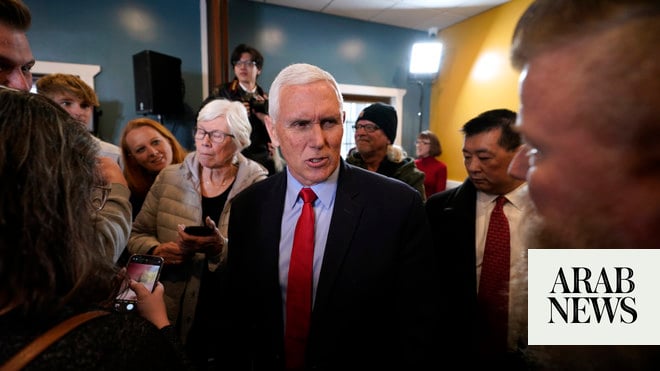
Hassan Rouhani has been president of Iran for more than six years. The Islamic Republic introduced him as a moderate clergyman and politician, and some Western media outlets, scholars and politicians bought the idea that Rouhani and his technocrat team were indeed opposed to the hard-liners and that they would be a benevolent force for improving human rights in Iran by reforming the theocratic establishment. A six-year period should be adequate to analyze and examine the performance of the Iranian president and his Moderation and Development Party.
Reports and data show that human rights violations have not only continued under Rouhani’s watch but have increased to an alarming level. The rate of executions has increased dramatically, with the Iranian regime currently ranked first in the world when it comes to the number of executions per capita. It is ranked second, after China, in regards to the total number of people executed.
In the first two years of Rouhani’s presidency, more people were executed than under the eight years of his hard-line predecessor Mahmoud Ahmadinejad. During Ahmadinejad’s two-term presidency, some 827 executions took place, while almost 1,200 people were executed in the first two years of Rouhani’s tenure. In Rouhani’s first six years in office, a total of nearly 3,800 people were executed, according to the Iran Human Rights Monitor.
The executions have included juveniles, women and individuals from ethnic and religious minority groups, including Ahwazi Arabs, Kurds and Sunnis. Iran’s Penal Code allows executions to be carried out by many different methods, including hanging, stoning and firing squad. In order to impose fear on society, many people were hanged in public, including 38 juveniles, 93 women and 91 political prisoners.
This brings us to Rouhani’s other notorious record: Iran has become a leading executioner of children, as the number of juveniles put to death increased in 2018. UN Special Rapporteur on the human rights situation in Iran Javaid Rehman said: “In 2018, there were seven reported cases of executions of child offenders. There are currently an estimated 90 individuals on death row who were all under the age of 18 at the time of their alleged offenses. Among the most recent cases, on 25 April 2019, two 17-year-old children, Mehdi Sohrabifar and Amin Sedaghat, were executed.” The two were reportedly forced to confess while they were tortured.
Although Iran has ratified the UN Convention on the Rights of the Child, Rouhani’s government has made no effort to alter the country’s Penal Code, which allows girls as young as nine to be executed.
In February, Amnesty International called on Iran to spare three Kurdish boys, Mohammed Kalhori, Barzan Nasrollahzadeh, and Shayan Saeedpour, from imminent execution. Saleh Higazi, Amnesty’s deputy Middle East and North Africa director, said in a statement: “The Iranian authorities must act quickly to save these young men’s lives. Failing to stop their execution would be another abhorrent assault on children"s rights by Iran.”
Rouhani has also appointed or promoted several people who were reportedly involved in egregious and wanton human rights violations, such as the 1988 mass execution of more than 30,000 prisoners. For example, Mostafa Pourmohammadi, who was a representative of the Ministry of Intelligence at the notorious Evin Prison and was implicated in the 1988 atrocities, served as Rouhani’s justice minister from 2013 to 2017. And Ebrahim Raisi, a former public prosecutor who was also implicated, was made Chief Justice of Iran in March.
Under Rouhani’s presidency, crackdowns on the Iranian population have also escalated. These include censorship of the media, restrictions on journalists, arbitrary arrests, inhumane punishments, the jamming of foreign satellite television channels, and the detention of human rights defenders and political activists. Many prominent human rights lawyers, including Nasrin Sotoudeh and her husband Reza Khandan, who defended or supported social movements such as opposition to the forced wearing of the hijab, have been unfairly prosecuted.
To suppress opposition, vague charges are often brought by the Islamic Republic’s judiciary system or the Islamic Revolutionary Court. Examples include “waging war against God,” spreading “moharebeh” (corruption on Earth) and endangering the country’s national security. These charges can be stretched to allow for simple acts such as criticizing the supreme leader to become crimes punishable by death.
The use of cruel and inhumane punishments is also on the rise. According to Amnesty International’s 2018 report, the use of various forms of torture, such as amputation and flogging, has been increasing at an alarming rate. One example included tying a man to a tree in public and flogging him 80 times.
During the six-year presidency of Rouhani, the human rights situation in Iran has deteriorated substantially. Rouhani is not a moderate but a regime loyalist.
Dr. Majid Rafizadeh is a Harvard-educated Iranian-American political scientist. He is a leading expert on Iran and US foreign policy, a businessman and president of the International American Council. Twitter: @Dr_Rafizadeh












